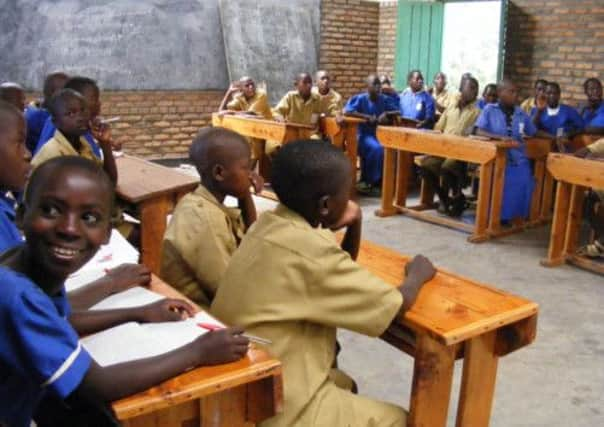Patrick Mercer: Foreign aid depends on military still being able to do their job as cuts bite


This is a controversial move which has caused a huge amount of disquiet from those who see foreign aid as being sacrosanct and also from those – and I include myself amongst their number – who believe that our Armed Forces have already been cut too far.
Let me set out my own stall first. I believe in foreign aid; I understand that assistance given to under-developed countries can not only help to prevent conflict but can also help those countries to grow as trading partners in a way that will help us.
Advertisement
Hide AdAdvertisement
Hide AdAs a former Imperial power, I also understand that we have moral and practical obligations to the countries with which we have historic links.
Now, international aid is not always spent in countries where there is actual conflict or the prospect of it.
None the less, during my time as a soldier and defence correspondent, I saw aid being delivered in places such as Bosnia, Iraq and on the Afghanistan/Pakistan border.
While in the Army, I had been taught about the utility of overseas aid, but it was an important lesson to see that aid could only be delivered effectively in fractious areas if it is surrounded by a comprehensive security programme.
Advertisement
Hide AdAdvertisement
Hide AdOn the surface, aid workers and soldiers don’t make easy bed fellows, but it is a simple matter of fact that if aid workers are going to be intimidated, harassed or murdered then aid will not be delivered at all.
This is why I was particularly pleased to see that the Department for International Development, now headed by Rotherham-born Justine Greening, was part of the National Security Council when the latter was launched by the Government. Put simply, aid and security are inextricably linked; they have mutual benefits and cannot exist one without the other. To suggest anything else is just naive.
As an MP, you get used to vociferous minorities claiming that they speak for the majority. Look no further than both sides of the fox hunting argument. And as an MP you have got to develop an instinctive feeling for what the silent majority of your constituents think.
I believe most people are tolerant of spending money overseas until it comes to some of the more telling elements of that spending. For instance, many in my constituency would take serious exception to millions of pounds being spent on foreign schools when our own secondary schools are tumbling down around our kids’ ears.
Advertisement
Hide AdAdvertisement
Hide AdBalance that against the comments of Oxfam’s head of policy Max Lawson. He has said that the aid budget should be spent on “hospitals and not helicopter gunships”, and that, “the millions of people up and down the country who support the fantastic stance the Government is taking, protecting the aid budget when every other G8 nation is not doing that – they expect this to be spent on schools and not soldiers”. I am not sure that those views would get much support in my part of the world.
Conjure with this: the overseas aid budget is increasing year on year. This year we plan to spend an extra £2.65bn on assisting people abroad. One national paper even said last week that if some of this money was diverted to the Armed Forces that this would “...help the Department for International Development (DfiD) spend a 30 per cent budget increase due in April”.
Help to spend? We are in the middle of a financial crisis, aren’t we? We are also seeing the Armed Forces being cut to the bone at a time when we are not just still fighting bloodily on the Afghanistan/Pakistan border, but when the Government that is carrying out the defence cuts has also just committed our soldiers, sailors and airmen to another expedition to Central North Africa!
I admire and share most of the aspirations of those who wish to help under privileged countries, but that has got to be realistic. For instance, we have recently had to open a food bank in my constituency Newark and its services are being readily utilised in some of the constituency’s more deprived areas.
Advertisement
Hide AdAdvertisement
Hide AdThis food bank is new; we haven’t had the need for it before the current financial crisis and I and many of my constituents wonder why millions of pounds have been given to countries like India – which has its own nuclear programme and which gives aid to other countries herself – when we desperately need the money on our own doorstep.
If you want peace, you prepare for war. Prevention is better than cure. There are plenty of other aphorisms that summarise this subject, but anyone who cannot see that overseas aid is a central part of our security policy simply hasn’t got their eyes open. Similarly, anyone who cannot see that international development budgets and those of the Ministry of Defence are out of balance must be blind.
The Prime Minister is not saying that DfID money goes to buy Max Lawson’s helicopter gunships, he is suggesting that an already developed relationship with the MoD is taken a sensible stage further, and he is right to do so.